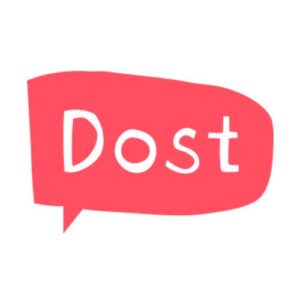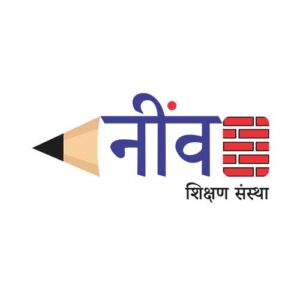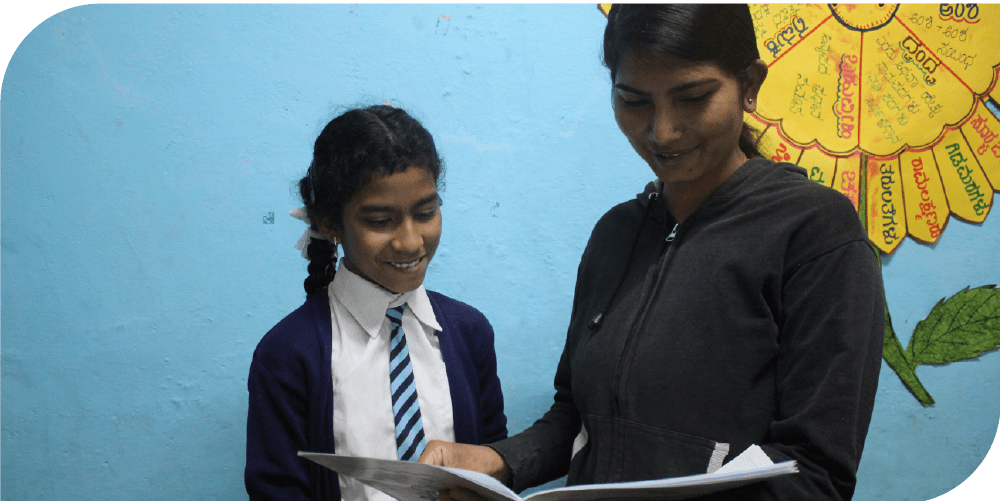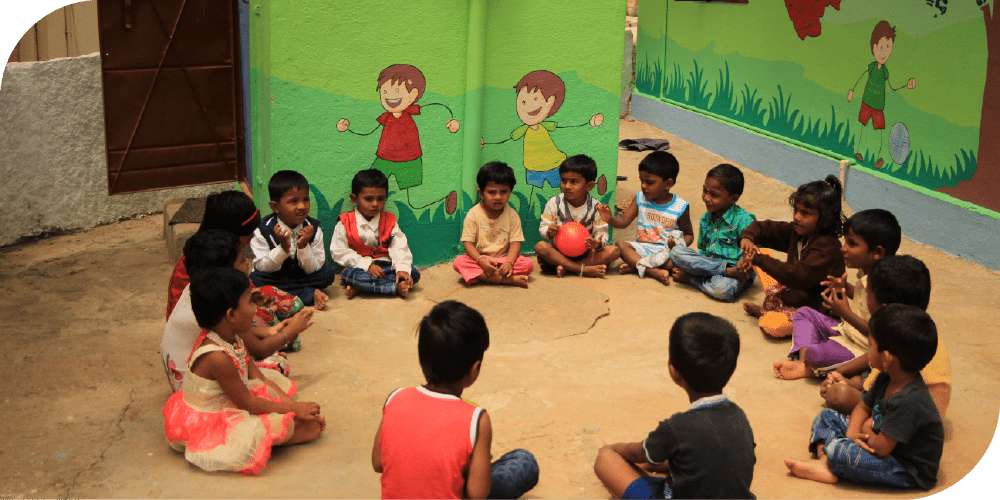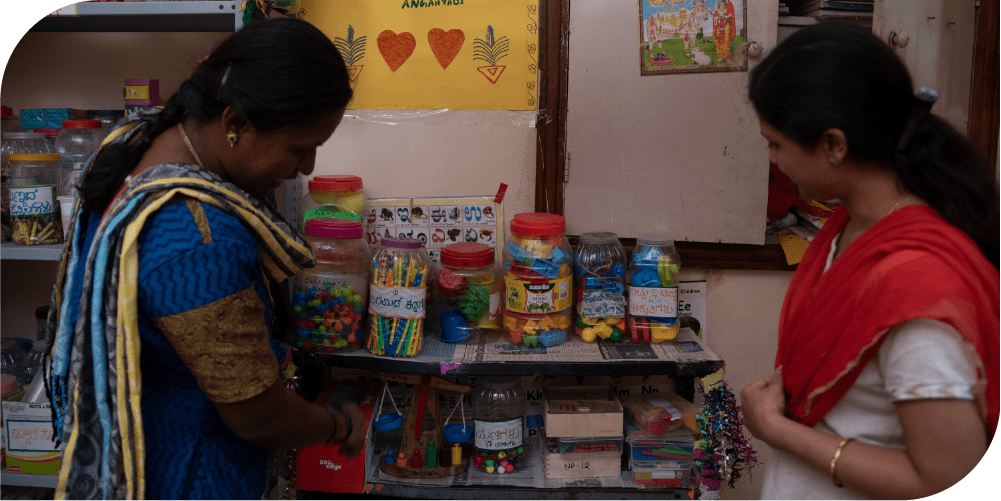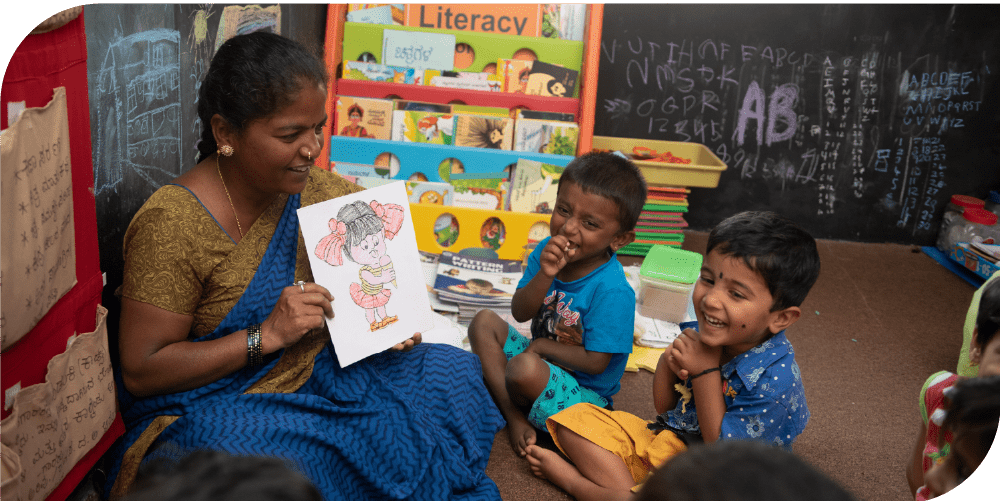Small steps for a big leap
Making foundational years impactful for every child
Tiny tales: Stories from early education
Why ECCE Collective
The people who will sit in the seat of power in 2042 are today in our Anganwadis and pre-schools. It is imperative to offer the best holistic development to ensure their future success and for all those who will look to them for leadership. To address the problem at this magnitude and scale, collective action becomes pivotal. To accelerate our efforts to bring quality education in early childhood, we are proposing collective action.
This is an opportunity for various organizations working in early childhood education, the government and other influencers to come together to make this collective action in ECCE an effective one. In this collective, we will discuss, debate, co-create and implement programs to build a stronger narrative around early childhood education and leadership in ECCE.
One way to increase the speed of change is to multiply the number of acts of improvements that are small, tangible, replicable and easy to implement across spaces and geographies. These micro improvements will eventually lead to large-scale systemic change. We have seen the power of this approach to bring systemic change in the schooling system. And we believe it’s a perfect opportunity to bring a similar change in early education.
Through this collective, we hope to bring diverse organisations who will bring in their expertise and knowledge to drive the idea of micro improvements and weave it into early childhood education.
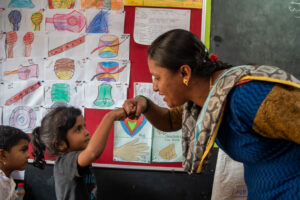

Micro Improvements for Building a Better Future
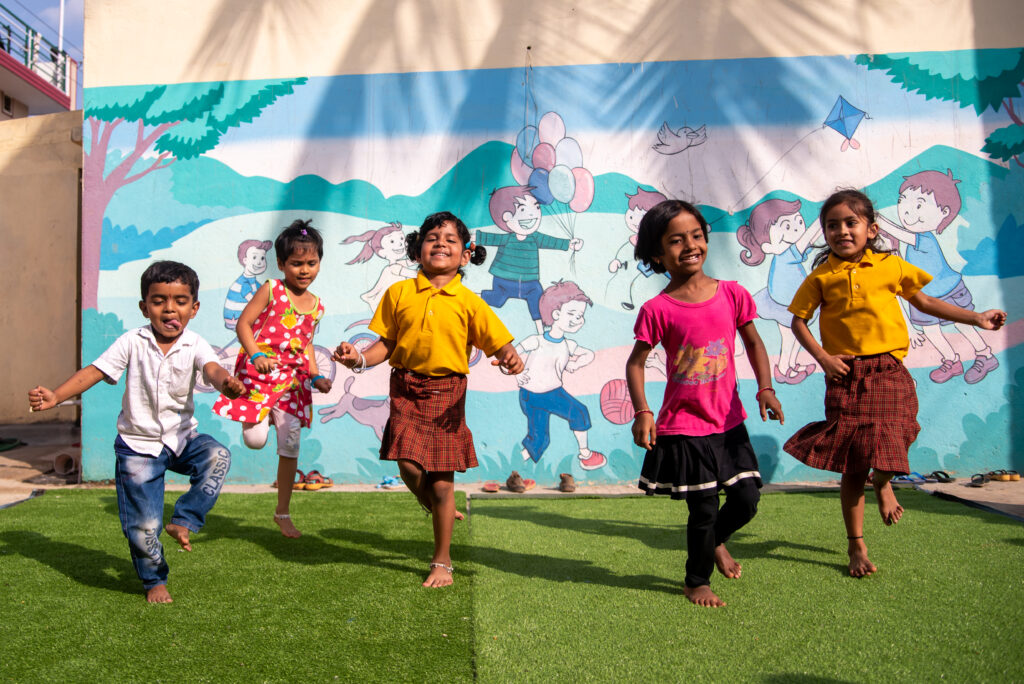
Micro-Improvement is an age-old concept that we have been applying to our daily life, sometimes consciously and at times subconsciously. It encourages the user to divide their time-consuming & complex long-term objectives into easy-to-do, short and simple steps with visible outcomes. The approach allows users the space to exercise their agency and pave their way to achieve the desired objectives, building their confidence and motivation to continue on the path of improvement. It’s the ultimate way to overcome the challenge of complexity and overwhelming demands of a big goal in any domain.
For K-12 education system in India, micro-improvements are enabled digitally as Projects on DIKSHA – the National Infrastructure for Education by the Ministry of Education, GoI, and are available to teachers, teacher educators and schools leaders on their mobile phone. Each micro-improvement on DIKSHA lends itself to a repository of best practices and innovations that other educators from across the country can discover, learn from and implement according to their needs. At Vidya Amrit Mahotsav, a national education festival organised to encourage and nurture pedagogical innovations, more than six lakh micro-improvements were recorded in 2022-23.
If you want to know more about micro improvements in ECCE or want to co-create programs, write to amrutha@makkalajagriti.org
Unbundle 3.0: Reimagining the Role of Leadership with Micro-Improvements
Unbundle is a design-thinking cum expert session to unbundle policies related to education and education leadership. After organising virtual Unbundles for about 2 years and a long wait to be able to do this in person, we finally got together with 20+ participanting organisations at Unbundle 3.0. Co-orchestrated with EkStep Foundation, Makkala Jagriti and Mantra4Change, this time we deep dived into the concept of micro-improvements (read the four part series on the approach here).
NCERT is currently orchestrating Vidya Amrit Mahotsav to encourage, recognise and nurture pedagogical innovations by teachers, teacher educators and school leaders. These stakeholders are employing the micro-improvements approach to conceptualise, plan and implement the innovations.
We brought together the different NGOs and institutions as we believe they can benefit from the Mahotsav opportunity by getting their stakeholders – teachers and school leaders – to participate and celebrate their wins.
Co-Creators

Partner Organizations

